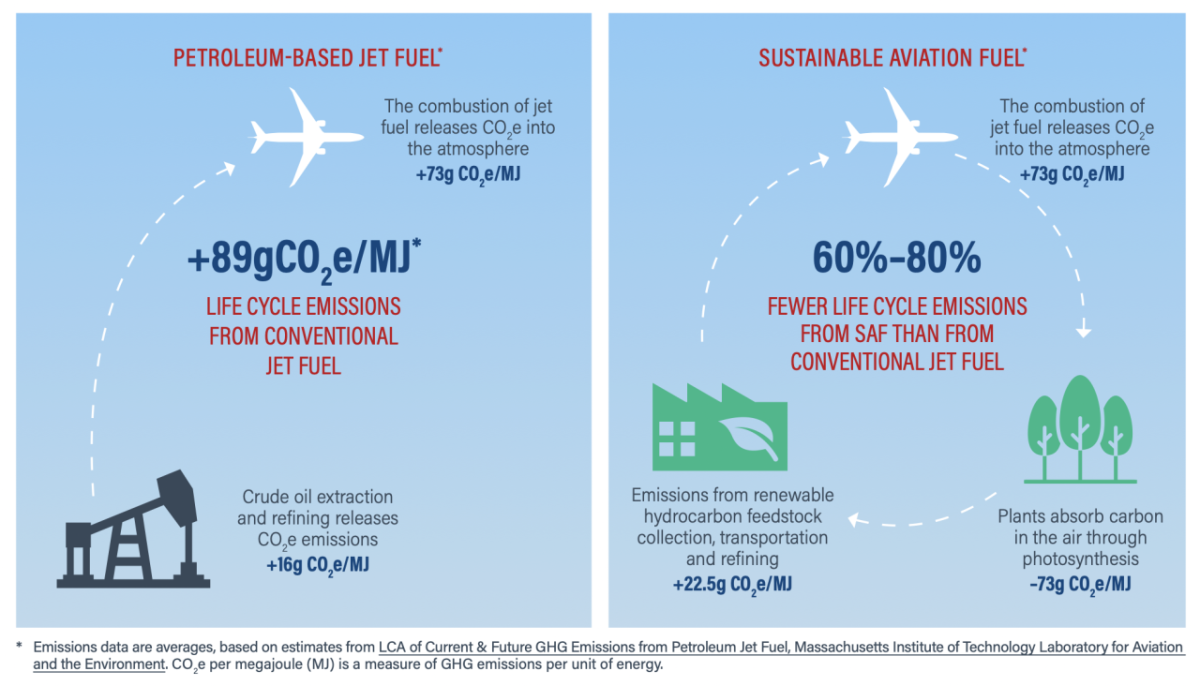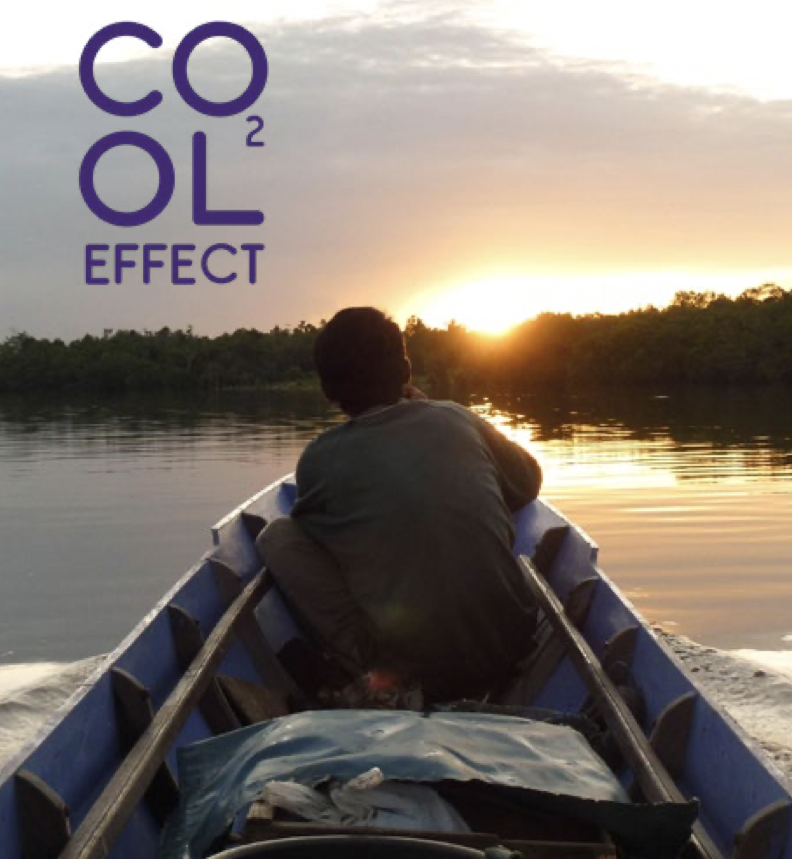American Airlines' Approach to Sustainable Aviation Fuel
Originally published in American Airlines 2021 ESG Report
The clearest near-term way for us to decarbonize is by using SAF, which is why purchasing and helping scale SAF production is the cornerstone of our climate strategy this decade. SAF will also be key to achieving the in-sector reductions required to meet our science-based target for 2035.
In late 2021, we finalized a new SAF offtake agreement with Aemetis, an advanced renewable fuels and biochemicals company, to take delivery of 16 million gallons of Aemetis SAF annually over a seven-year period beginning in 2024. The agreement is the result of work with the oneworld® Alliance. The SAF will be produced at the Aemetis Carbon Zero plant under development in Riverbank, California. The facility will use zero carbon intensity hydroelectric electricity to process nonedible waste oils into SAF. Emissions associated with the SAF will be further reduced by producing hydrogen, which is used in SAF processing, from waste wood and by capturing and sequestering any remaining CO2 underground.
The agreement with Aemetis brings American’s total SAF commitment to more than 120 million gallons. That includes plans to purchase up to 10 million gallons of carbon-neutral SAF produced by Prometheus Fuels, which uses a novel process to make net zero carbon transportation fuels. American took our first delivery of SAF in mid-2020, and in 2021 we used over 1.4 million gallons of SAF. That makes us the only member of Airlines for America to report using more than 1 million gallons of SAF during the year.
As critical as SAF is for achieving our own and our industry’s climate goals, it is not yet available at the scale or price needed to reduce emissions significantly. Scaling SAF produc tion to the point where it can materially reduce aviation’s emissions and be cost competitive will take the combined efforts of the private and public sectors. One way American is helping advance those efforts is as an anchor partner in Breakthrough Energy Catalyst (see page 13). We also continue to advocate for governments to deploy policy tools, including incentives, credits and investments in research, to create the market conditions needed to make SAF an economically viable alternative to conventional jet fuel.
Another way we are working to build the SAF market is by partnering with our corporate customers to simultaneously help advance their climate commitments while growing demand for SAF. In early 2021, we launched an innovative pilot program with Deloitte to explore how a new market-based solution — a certificate that allocates the emissions reduction value of SAF — can benefit companies seeking to reduce their Scope 3 business travel emissions. The SAF certificate is a concept under development by the World Economic Forum’s Clean Skies for Tomorrow initiative, aimed at unlocking new capital to boost SAF production by harnessing the ambition of corporate climate goals.
This agreement was one of the first collaborations between an organization seeking to reduce net emissions from business travel and a U.S. airline that is using SAF in its daily operations. We have since completed similar agree ments with Kuehne+Nagel, a global logistics company, Bank of America, and a number of other companies.
Advancing SAF Through the oneworld Alliance
The members of the oneworld Alliance — which includes American and 12 other carriers — have taken a number of important steps to chart a path forward in reducing their emissions. In September 2020, oneworld became the first global airline alliance to announce a target of carbon neutrality by 2050, establishing its commitment to sustainability. The alliance followed up that commitment with an intermediate goal to achieve 10% SAF use across the member airlines by 2030. This is not just about setting a target, but also committing to playing an active role in the development of SAF at commercial scale that is affordable, available and certified with the sustainability criteria as recognized by the International Civil Aviation Organization (ICAO) and relevant authorities.
In late 2021 and early 2022, the oneworld Alliance airlines announced their intention to purchase up to 550 million gallons of blended SAF from the renewable fuels companies Aemetis and Gevo for their operations at California airports. Once finalized, the agreements will cover the delivery of SAF over a five- to seven-year term beginning in 2024. The SAF is blended with petroleum jet fuel to meet international standards for aviation fuel.
Enabling Our Customers to Offset Their Flights
American partners with Cool Effect, a leading nonprofit provider of carbon offsets, to give our customers the opportunity to easily calculate the emissions of their flight and purchase high-quality offsets. Thousands of customers have chosen to offset the emissions from their flights through Cool Effect since we launched the program in 2020. Companies participating in American’s Business Extra® program can redeem their points with Cool Effect to offset the carbon emissions of their business travel. And AAdvantage® members can use their Loyalty Choice Rewards to redeem carbon offsets through Cool Effect as well.
Cool Effect uses more than 90% of each offset dollar to fund a portfolio of high-quality, verified carbon reduction projects that protect and conserve our planet’s resources.
Learn more at www.cooleffect.org/american-airlines.



